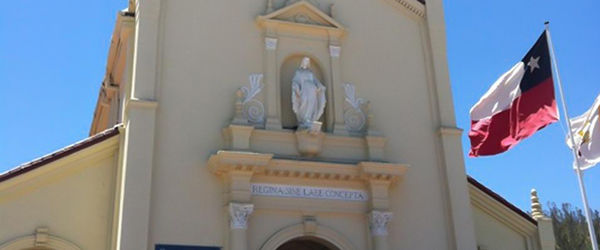National and local Catholic charitable agencies around the country have long provided services to people in need, regardless of immigration status. However, several states have recently passed laws that forbid what state legislatures consider “harboring” of undocumented immigrants — and what the Church considers Christian charity and pastoral care to those immigrants.In Alabama, for example, the Catholic bishops, in cooperation with the Episcopal and Methodist bishops of Alabama, filed suit against a law prohibiting “harboring” of undocumented immigrants. Together, they explained that the new “law makes illegal the exercise of our Christian religion which we, as citizens of Alabama, have a right to follow.” They expressed concern that legally prohibited “harboring” (when there is knowledge or reckless disregard of the fact that persons are undocumented immigrants) could include “almost everything which would assist an undocumented immigrant or encourage an undocumented immigrant to live in Alabama.” The law would have a chilling effect on their ministries — among other things, these church leaders feared that the prohibition on “harboring” would extend to activities like “encourag[ing immigrants] to attend Mass or giv[ing] them a ride to Mass;” “counsel[ing] them in times of difficulty or in preparation for marriage;” and inviting “them to come to Alcoholic Anonymous meetings or other recovery groups at our churches.” Other states have adopted similar laws that threaten the Church’s ministry to undocumented immigrants. On March 27, 2012, the U.S. Conference of Catholic Bishops and several other Christian denominations filed an amicus brief with the U.S. Supreme Court in the case of Arizona v. United States. The brief discusses how the Arizona law and many state immigration laws like it threaten the Catholic mission to provide food, shelter, and other care to all.Aside from Alabama and Arizona, Georgia, Oklahoma, South Carolina, and Utah have enacted laws that generally make criminal the “harboring” of undocumented immigrants.Is our most cherished freedom truly under threat? Among many current challenges, these state immigration laws affect the religious liberty of the Church because they have criminalized certain acts of Christian charity and pastoral care. Religious liberty is more than freedom of worship; it includes our ability to make our contribution to the common good of all Americans without having to compromise our faith. Without religious liberty properly understood, all of us suffer, including those who seek a better life here in the United States.The articles on these pages are part of a series on Religious Liberty prepared by the U.S. Conference of Catholic Bishops. For more information and resources, visit www.usccb.org and click on “Fortnight for Freedom.” {gallery width=100 height=100}gallery/2012/0622/freedom/{/gallery}

